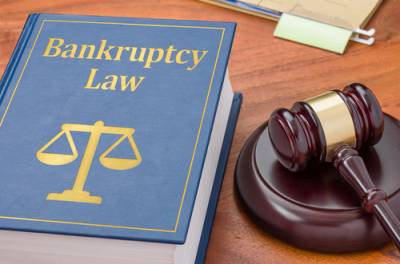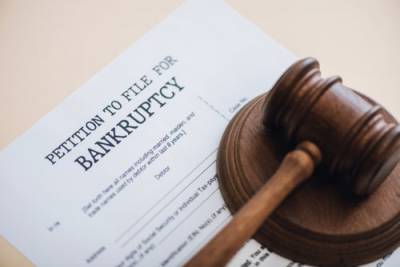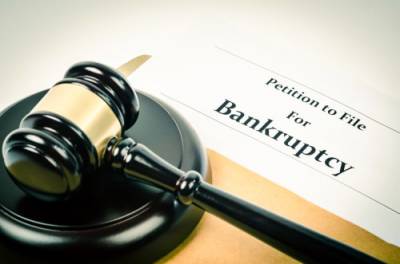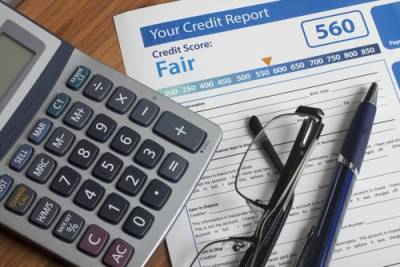Recent Blog Posts
New Texas Law May Help Debtors Exempt Assets From Seizure by Creditors

New laws are passed regularly, and in many cases, they go into effect on the first day of the following year. However, keeping up with changes to the law can be difficult, especially for members of the general public who are not well-versed in legal issues. It can be important to be aware of these changes, because they can affect people's lives in many ways. One Texas law that took effect on January 1, 2023 may play a role in cases involving bankruptcy or other debt-related issues. This law gives debtors more options for preventing creditors from seizing their assets following a legal judgment.
Student Loans Now Dischargeable in Bankruptcy
 Until November of 2022, student loans were nearly impossible to discharge in bankruptcy. The previous standard to discharge student loans required a total inability to repay student loan debt. In practice, this meant a debtor needed to be unable to ever work or earn a living.
Until November of 2022, student loans were nearly impossible to discharge in bankruptcy. The previous standard to discharge student loans required a total inability to repay student loan debt. In practice, this meant a debtor needed to be unable to ever work or earn a living.
Now, the Department of Justice, in close coordination with the Department of Education, is implementing a new process at the outset of adversary proceedings in which debtors seek to discharge federal student loans in bankruptcy. While the bankruptcy judge makes the final decision on whether to grant a discharge, the Justice Department can play an important role in that decision by supporting discharge in appropriate cases. The new process will help ensure transparent and consistent expectations for the discharge of student loan debt in bankruptcy; reduce the burden on debtors of pursuing such proceedings; and make it easier for Justice Department attorneys to identify cases where discharge is appropriate.
When Can a Chapter 7 or Chapter 13 Bankruptcy Be Dismissed?
 Being in debt can be a difficult experience, and debtors may not only face financial difficulties, but they may need to deal with harassment by creditors or concerns about foreclosure, repossession, or legal judgments. Filing for bankruptcy is often the best way to rectify these concerns, and the completion of the bankruptcy process will allow certain debts to be eliminated. However, debtors will need to be aware of the possibility that their bankruptcy case could be dismissed. By understanding why this might happen, debtors can take the proper steps to avoid any issues that could affect their ability to receive relief from their debts.
Being in debt can be a difficult experience, and debtors may not only face financial difficulties, but they may need to deal with harassment by creditors or concerns about foreclosure, repossession, or legal judgments. Filing for bankruptcy is often the best way to rectify these concerns, and the completion of the bankruptcy process will allow certain debts to be eliminated. However, debtors will need to be aware of the possibility that their bankruptcy case could be dismissed. By understanding why this might happen, debtors can take the proper steps to avoid any issues that could affect their ability to receive relief from their debts.
When Can a Chapter 7 Bankruptcy Be Dismissed?
Chapter 7 involves selling some of the debtor’s assets in order to pay off creditors, and it allows debts to be discharged relatively quickly. A Chapter 7 case can be dismissed if the debtor fails to complete the required credit counseling, does not provide full and accurate financial information, or fails to appear at any court hearings or meetings with creditors. In addition, a case can also be dismissed if the debtor intentionally tries to hide assets or commits any type of fraud during the bankruptcy process.
Can Bankruptcy Stop the Repossession of My Car?
 While there are a number of reasons why people consider bankruptcy, they usually involve large debts and financial difficulties that affect a person's ability to meet their financial obligations. Unfortunately, the non-payment of debts can lead to additional difficulties, such as a potential repossession of a vehicle if a person is unable to make payments on an auto loan. If you are struggling to make your car payments, you may be wondering if bankruptcy can help you keep your car. Your ability to avoid a repossession or recover a vehicle that has been repossessed will depend on several factors, including the type of bankruptcy you file, the value of your car, and the amount you owe.
While there are a number of reasons why people consider bankruptcy, they usually involve large debts and financial difficulties that affect a person's ability to meet their financial obligations. Unfortunately, the non-payment of debts can lead to additional difficulties, such as a potential repossession of a vehicle if a person is unable to make payments on an auto loan. If you are struggling to make your car payments, you may be wondering if bankruptcy can help you keep your car. Your ability to avoid a repossession or recover a vehicle that has been repossessed will depend on several factors, including the type of bankruptcy you file, the value of your car, and the amount you owe.
Can Bankruptcy Prevent a Repossession?
There are two different types of bankruptcy, and it is important to understand repossessions and vehicle loans will be treated in each of these options. In a Chapter 7 bankruptcy, also known as a liquidation bankruptcy, some of your assets may be sold off to repay your creditors, and your debts may then be discharged. In a Chapter 13 bankruptcy, also known as a reorganization bankruptcy, you create a repayment plan to repay your creditors over time. This repayment plan will last for several years, and once it is completed, the unsecured debts that still remain will be discharged.
How Are Second Mortgages Handled in Chapter 13 Bankruptcy Cases?
 If you are considering bankruptcy, you might be wondering what will happen to your home. While bankruptcy will allow you to discharge, or eliminate, most debts, your home mortgage is a loan that is secured by the equity you have in your home. In other words, the lender uses your home as collateral for the loan. If you fall behind on your payments or otherwise default on the loan, the lender can foreclose on your home. To avoid this, you may choose to file for Chapter 13 bankruptcy, which can actually help you pay off your mortgage over time, rather than having it forgiven. However, if you have a second mortgage or another junior loan on your home, such as a home equity line of credit, you may be unsure about how these loans will be treated during the bankruptcy process. In some cases, you may be able to use a process known as "lien stripping" to discharge these debts, which may reduce the total amount you will be required to repay.
If you are considering bankruptcy, you might be wondering what will happen to your home. While bankruptcy will allow you to discharge, or eliminate, most debts, your home mortgage is a loan that is secured by the equity you have in your home. In other words, the lender uses your home as collateral for the loan. If you fall behind on your payments or otherwise default on the loan, the lender can foreclose on your home. To avoid this, you may choose to file for Chapter 13 bankruptcy, which can actually help you pay off your mortgage over time, rather than having it forgiven. However, if you have a second mortgage or another junior loan on your home, such as a home equity line of credit, you may be unsure about how these loans will be treated during the bankruptcy process. In some cases, you may be able to use a process known as "lien stripping" to discharge these debts, which may reduce the total amount you will be required to repay.
7 Common Myths and Misconceptions About Bankruptcy
 If you are struggling with debt, you may be looking at different options for getting your finances back on track, including filing for bankruptcy. However, you may have heard some things about bankruptcy that make you hesitant to file. It is important to get the facts before making any decisions about your financial future. There are a lot of myths and misconceptions out there about bankruptcy—and they deter many people from taking action when necessary. Here are some of the most common myths about bankruptcy, debunked:
If you are struggling with debt, you may be looking at different options for getting your finances back on track, including filing for bankruptcy. However, you may have heard some things about bankruptcy that make you hesitant to file. It is important to get the facts before making any decisions about your financial future. There are a lot of myths and misconceptions out there about bankruptcy—and they deter many people from taking action when necessary. Here are some of the most common myths about bankruptcy, debunked:
-
Myth #1: Bankruptcy Will Ruin Your Credit Score
Truth: While a bankruptcy filing will stay on your credit report for seven to 10 years, this does not mean that your credit will be completely ruined. In fact, many people who file for bankruptcy see their credit scores increase within two years after their debts are discharged. If you are careful about using credit and make an effort to pay bills on time after your bankruptcy, you will most likely see your score continue to rise.
How Will Filing for Bankruptcy Affect the Collection of Debts?
 For people who are considering bankruptcy, large debts have affected their lives and their finances in many ways. The requirement to make payments toward multiple debts each month may have become impossible, especially if a family is experiencing financial difficulties due to the loss of a job, unexpected expenses, or other issues. To make matters worse, late or missed payments may have led creditors to begin taking action to collect debts. People in these situations often experience harassment from creditors, which may include regular phone calls at home or at work, as well as threats to repossess property or even claims that a person could face criminal consequences due to failure to repay what is owed.
For people who are considering bankruptcy, large debts have affected their lives and their finances in many ways. The requirement to make payments toward multiple debts each month may have become impossible, especially if a family is experiencing financial difficulties due to the loss of a job, unexpected expenses, or other issues. To make matters worse, late or missed payments may have led creditors to begin taking action to collect debts. People in these situations often experience harassment from creditors, which may include regular phone calls at home or at work, as well as threats to repossess property or even claims that a person could face criminal consequences due to failure to repay what is owed.
One of the key benefits of filing for bankruptcy is the fact that doing so will put an "automatic stay" in place that will require creditors to stop attempting to collect debts. The automatic stay is a court order that will force creditors to cease any debt collection actions while the bankruptcy case is ongoing. For those who are thinking of filing for bankruptcy, it is important to understand how the automatic stay works and what it means for creditors.
What Is the Means Test in Texas Bankruptcy Cases?
 Debt can be a problem for many people, especially those who have suffered setbacks that have affected their income and financial resources, such as a serious illness that has limited their ability to work. Fortunately, bankruptcy can be an option for eliminating debts. When you file for bankruptcy in Texas, your case will be assigned to one of two chapters—Chapter 7 or Chapter 13. In order to qualify for Chapter 7, which will allow for the elimination of most debts within a few months after filing, you must pass the means test, which is a way of determining whether your income is low enough to allow you to file for this type of bankruptcy.
Debt can be a problem for many people, especially those who have suffered setbacks that have affected their income and financial resources, such as a serious illness that has limited their ability to work. Fortunately, bankruptcy can be an option for eliminating debts. When you file for bankruptcy in Texas, your case will be assigned to one of two chapters—Chapter 7 or Chapter 13. In order to qualify for Chapter 7, which will allow for the elimination of most debts within a few months after filing, you must pass the means test, which is a way of determining whether your income is low enough to allow you to file for this type of bankruptcy.
How Does the Means Test Work?
The means test is actually quite simple. First, your income is calculated by taking your total household income from the past six months and averaging it out to determine your monthly income. This number will be compared to the median income earned by people in Texas, and this amount will be based on the size of your household. For Texas bankruptcy cases filed after May 15, 2022, the median income for a single person is $55,441, or $4,620 per month. For a married couple, the median income is $74,636, and higher median incomes will apply if a person or couple has children or if there are others who live in their household. If your income is below the median for your family size, you automatically qualify for Chapter 7 bankruptcy.
Will I Lose All My Assets When Filing for Bankruptcy?
 While debt is a significant concern for many people, and bankruptcy is an option that will allow many of these debts to be eliminated, this form of debt relief is often seen as a last resort. This is often because people are concerned about losing all of their assets, including their home or car, when they file for bankruptcy. However, this is not necessarily true, and in fact, many people can complete a "no-asset" bankruptcy in which all of the assets they own will be protected by exemptions. By understanding the exemptions that apply in your situation, you can determine whether you will be able to file for bankruptcy and keep as much of your property as possible.
While debt is a significant concern for many people, and bankruptcy is an option that will allow many of these debts to be eliminated, this form of debt relief is often seen as a last resort. This is often because people are concerned about losing all of their assets, including their home or car, when they file for bankruptcy. However, this is not necessarily true, and in fact, many people can complete a "no-asset" bankruptcy in which all of the assets they own will be protected by exemptions. By understanding the exemptions that apply in your situation, you can determine whether you will be able to file for bankruptcy and keep as much of your property as possible.
Bankruptcy Exemptions in Texas
Generally, concerns about the loss of property will only apply in Chapter 7 bankruptcy cases. In this type of bankruptcy, the bankruptcy trustee will liquidate (sell) the debtor's nonexempt assets and use the proceeds to pay creditors. However, many people who file for Chapter 7 bankruptcy do not lose any property because they are able to protect all of their assets using the bankruptcy exemptions that are available in their state.
How to Rebuild Your Credit After Bankruptcy
 Debt can be a serious issue that affects you and your family, and financial problems can have a significant impact on your credit. Missed payments can lower your credit score. If bankruptcy becomes necessary to wipe out debts and provide your family with a fresh financial start, this will not only cause your credit score to decrease further, but the bankruptcy will remain on your credit report for several years. A low credit score and a previous bankruptcy filing can affect you in multiple ways, including by making creditors less likely to grant credit or approve you for loans that will let you purchase a home or vehicle. Fortunately, there are things that can be done to increase your credit score after you complete the bankruptcy process.
Debt can be a serious issue that affects you and your family, and financial problems can have a significant impact on your credit. Missed payments can lower your credit score. If bankruptcy becomes necessary to wipe out debts and provide your family with a fresh financial start, this will not only cause your credit score to decrease further, but the bankruptcy will remain on your credit report for several years. A low credit score and a previous bankruptcy filing can affect you in multiple ways, including by making creditors less likely to grant credit or approve you for loans that will let you purchase a home or vehicle. Fortunately, there are things that can be done to increase your credit score after you complete the bankruptcy process.
Methods of Increasing Your Credit Score
Rebuilding credit after bankruptcy requires time and effort, but it can be done. The first step is to make sure all debts included in the bankruptcy have been discharged. You may want to check your credit report and make sure all information is accurate and up to date. Once this has been confirmed, the next step is to begin re-establishing credit by demonstrating financial responsibility. Some methods of doing so include:









